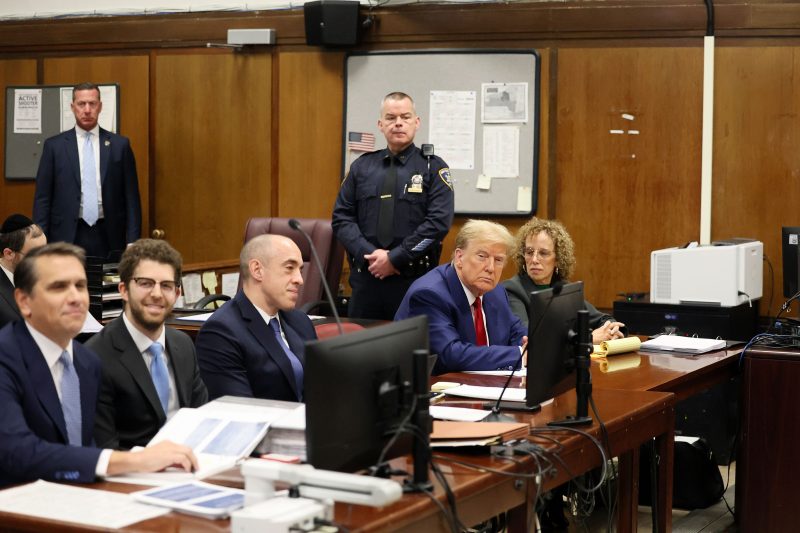In the high-stakes realm of American politics, the idea of a presidential candidate continuing to serve if convicted of a crime is a controversial topic that raises profound questions about the integrity of the nation’s highest office. With the recent news that Donald Trump is the likely GOP nominee for the next presidential election, the issue has once again come to the forefront of public discourse.
The U.S. Constitution does not explicitly disqualify a convicted individual from holding the presidency. However, the situation is vastly complex when the individual in question is the sitting President of the United States. If Trump were to be convicted of a crime, whether during his presidency or thereafter, the implications would be far-reaching and unprecedented.
One of the key concerns surrounding a scenario in which a convicted Trump serves as president is the potential erosion of public trust in the political system. The office of the presidency embodies the values and principles of the nation, and a leader tainted by criminality would undoubtedly cast a shadow over the credibility of the government. Moreover, the idea of a president continuing to hold power despite being found guilty of illegal conduct goes against the fundamental principles of justice and accountability.
Another pressing issue is the impact on the rule of law. The U.S. legal system operates on the premise that all individuals are equal before the law, regardless of their status or position. Allowing a convicted president to remain in office could set a dangerous precedent and undermine the very foundations of the legal framework that governs the country.
Furthermore, the practical implications of a convicted Trump serving as president cannot be overlooked. A leader embroiled in legal battles and facing potential imprisonment would likely be distracted from the responsibilities of governing the nation effectively. This could have serious ramifications on domestic and foreign policy, as well as on the overall stability of the country.
In conclusion, the prospect of a convicted individual serving as president raises profound ethical, legal, and practical concerns that cannot be ignored. While the U.S. Constitution does not explicitly address this issue, the potential consequences for the nation’s governance and credibility are significant. As the political landscape continues to evolve, it is essential for citizens and lawmakers alike to grapple with these complex questions and to uphold the principles that underpin the democratic system.
